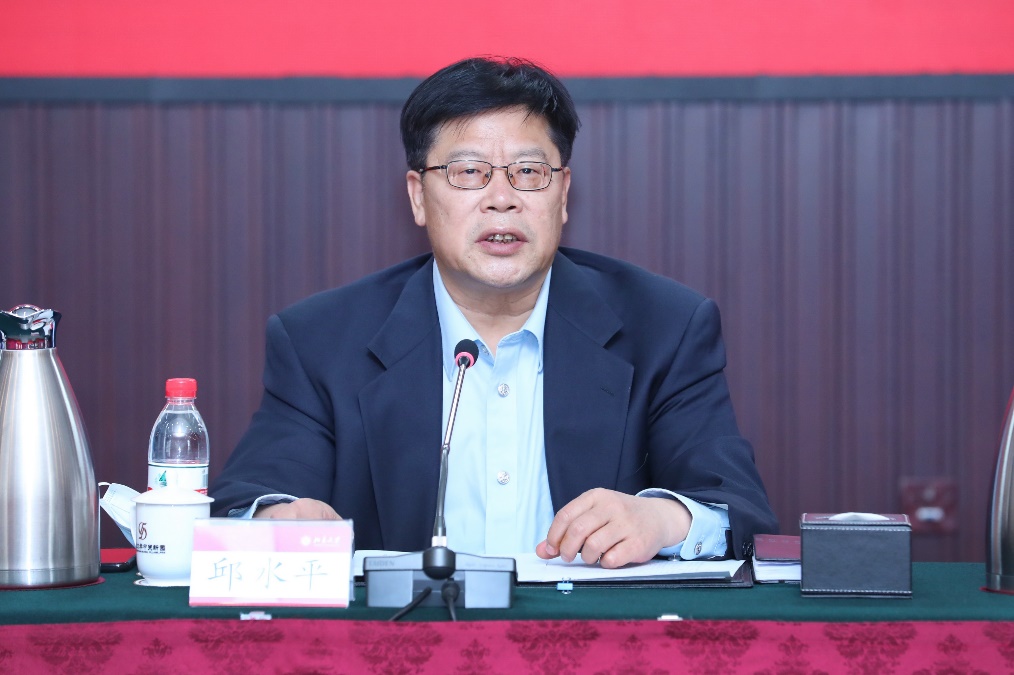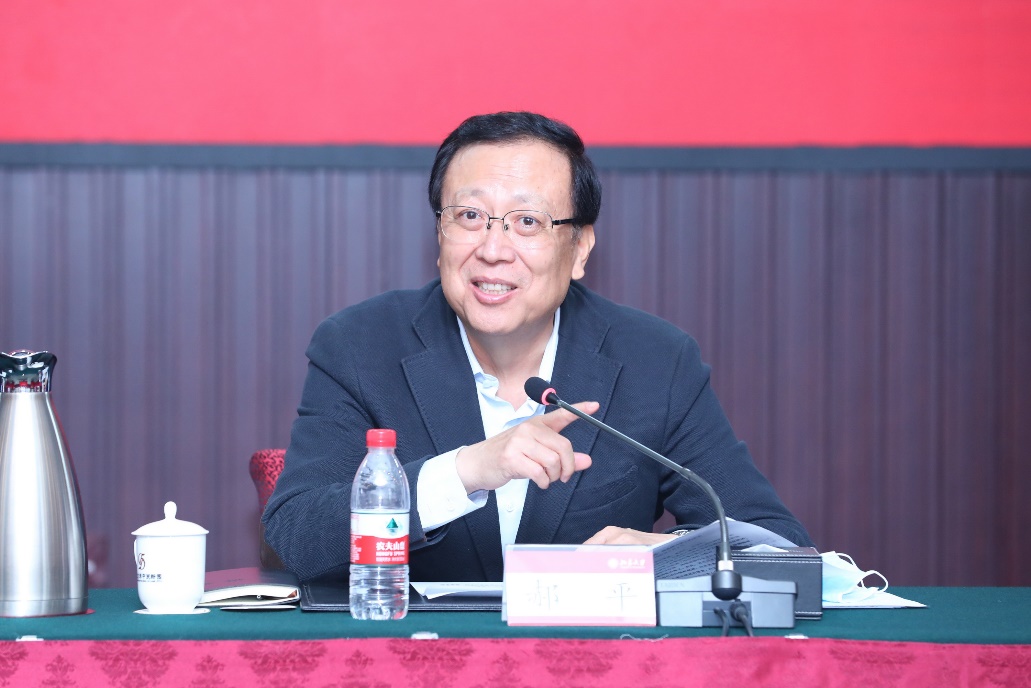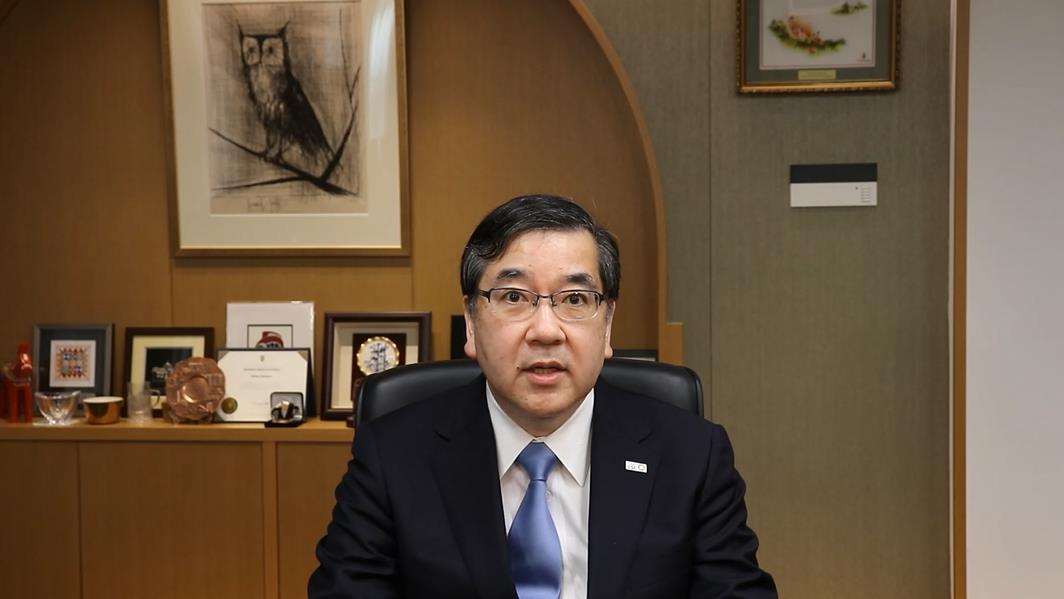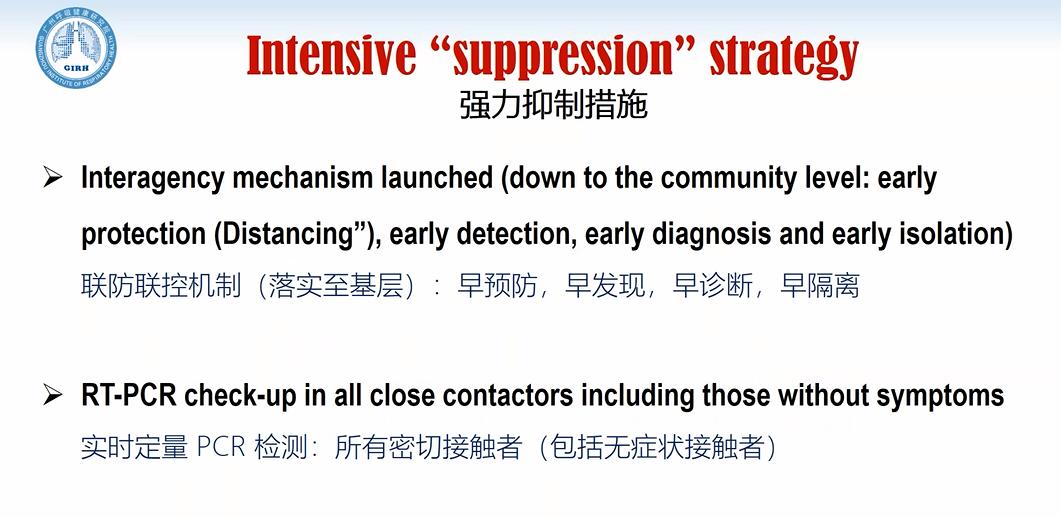Peking University, May 5, 2020: As the novel coronavirus outbreak begins to show signs of abating in China, Peking University hosted a symposium on the global governance in the post-pandemic era, inviting heavyweights from home and abroad to dissect and discuss pressing issues that pertain to politics, economy, education, public health and much more. The high-level event was held on the fourth of May, coinciding with the 122nd anniversary of Peking University, also the 101st anniversary of the May Fourth Movement and China’s Youth Day. Peking University Vice President Wang Bo presided over the symposium.
 At the symposium
At the symposium
In his opening remarks, Qiu Shuiping, chair of the Peking University Council, said the panel discussion, one of the highly anticipated events during the 122nd anniversary of PKU, was held when some countries are still struggling to contain the novel coronavirus outbreak, which demonstrated PKU’s responsibility for responding to this global public health crisis. Qiu stressed that the pandemic called for a pressing, essential improvement of the global governance system, and it is the responsibility of universities to keep providing expert consultations throughout the process.
 Qiu Shuiping
Qiu Shuiping
Speaking at the symposium, Peking University President Hao Ping said that although the pandemic posed severe challenges to universities, higher education institutions should remain committed to conducting research and upholding scientific values. Hao added that universities are expected to give full play to their roles in think tanks, providing knowledge in addressing new challenges and options to improve national governance.
 Hao Ping
Hao Ping
While some panelists were unable to attend the forum in person, they still passed on their regards to Peking University and shared their reflection on global governance through various forms.
Former U.S. Secretary of State Henry Kissinger, a renowned diplomatic figure who has visited Peking University on several occasions over the past few years, extended his congratulations on PKU’s 122nd anniversary via email.
Meanwhile, following PKU’s participation in the World Economic Forum’s Global University Leaders Forum on April 8, Klaus Schwab, founder and executive chairman of the World Economic Forum (Davos), recently wrote a letter with his best regards to Peking University, lauding PKU’s active involvement in sharing insights with the global peers.
“Scholars from PKU are also very active at the WEF’s events and communities. We are pleased that several up and coming professors have joined the WEF’s Young Scientists and Young Global Leaders communities,” Schwab wrote.
Recognizing Peking University as one of the most precious and closest partners, Makoto Gonokami, chair of the International Alliance of Research Universities (IARU) and president of the University of Tokyo, introduced in a video how Peking University and the University of Tokyo are working together to weather the COVID-19 pandemic.
Makoto Gonokami
“In IARU, we recently set up a Working Group on Epidemiology to collaborate on medical research on COVID-19. We have also started sharing good practices on online education. Both started with the strong initiative of President Hao Ping and colleagues of Peking University,” Gonokami said.
Speaking on behalf of Harvard University through a video, Ezra Vogel, former director of East Asian Research Center at Harvard, offered his congratulations on PKU’s 122nd birthday and emphasized the significance of China-US cooperation when tackling global challenges. Vogel is confident that both universities are blessed with a wealth of outstanding intellectuals who can pave the way for a peaceful relationship between the two countries.
Ezra Vogel
“I believe that intellectuals of our universities, like Peking University and Harvard, working with political leaders in our two countries, can make a constructive contribution to finding programs that can be acceptable to the leaders and public in both countries. We scholars in the world must unite, in pursuit of peaceful relations between our two great countries,” Vogel said.
Moreover, Peking University takes pride in receiving a video from Zhong Nanshan, China's top respiratory expert and PKU alumnus. In his video, Zhong expressed his affection with Peking University and delivered an informative presentation on China’s intensive “suppression” strategy against COVID-19 and its positive outcomes.
The line-up of distinguished speakers also included PKU scholars who attended the symposium in person, listed below:
● Zhan Qimin, Executive Vice President of Peking University; Director of the PKU Health Science Center; Member of the Chinese Academy of Engineering
● Qian Chengdan, Director of the PKU Institute of Area Studies; Professor of the PKU Department of History
● Justin Yifu Lin, Former Senior Vice President and Chief Economist of the World Bank; Dean of the PKU Institute of New Structural Economics; Dean of the PKU Institute of South-South Cooperation and Development; Professor and Honorary Dean of the PKU National School of Development
● Jia Qingguo, Professor of the PKU School of International Studies
● Gordon Liu, Professor of the PKU National School of Development
● Pan Wei, Professor of the PKU School of International Studies
● Li Ling, Mulan Chair Professor of the PKU National School of Development
● Jiang Shigong, Deputy Director of the PKU Office of Educational Administration; Professor of the PKU Law School
● Qu Jingdong, Executive Deputy Director of the PKU Institute of Humanities and Social Sciences; Professor of the PKU Department of Sociology
● Yu Miaojie, Deputy Dean and Professor of the PKU National School of Development
They believed that the novel coronavirus outbreak heralds an era of a complex international landscape in the coming years, so international collaboration will be crucial in creating a well-established system of global governance. The pundits also noted that China, particularly younger generations, should involve in initiatives that will continue to build a community of common health for mankind.
Written by: Huang Weijian
Edited by: Zhang Jiang, Jacob Tomkins
Photo credit to: Liu Yueling





